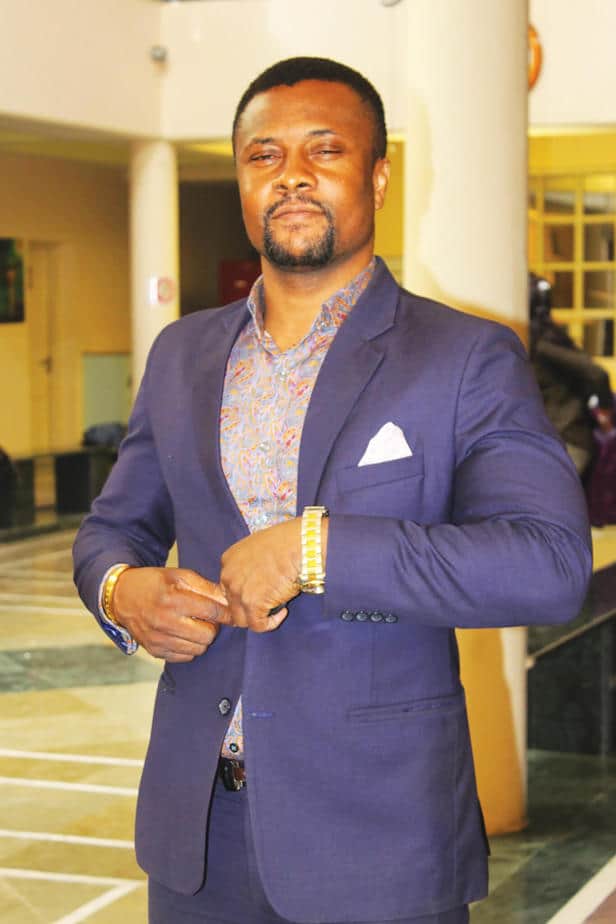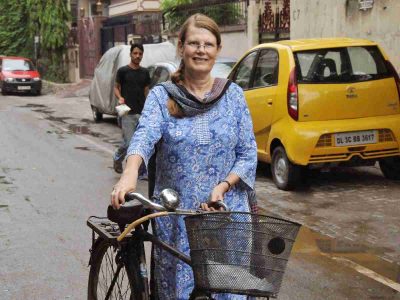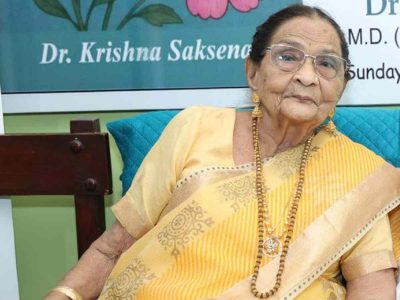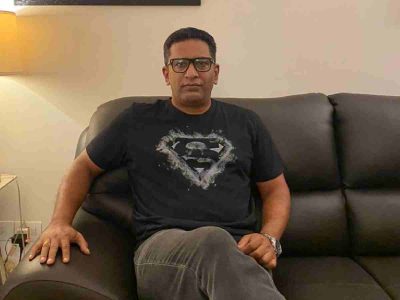This is a rare story of the struggle and triumph of a Nigerian in the city of Delhi, which has its racist moments but is slowly developing a cosmopolitan outlook
Ola Jason looks dapper in a blue cotton suit; an impressive printed shirt defines his muscular torso. He hangs his coat meticulously on the back of his chair and settles down to talk. He’s a Nigerian who has been living in Delhi for more than eight years after coming here to study.
His stay has been a mixed bag, including time in Tihar jail as an undertrial – he was later acquitted in an alleged case of drug peddling. Unperturbed, he stayed on and built his life from scratch in Delhi. He’s now a businessman, actor, model and uncrowned leader of the African expat community in the city. He got married a few years ago to a Russian woman and they have a daughter.
For an African in the city, with media usually gives the bad news. Jason, in that sense is a survivor in a hostile city. He tried various professions and did well in modelling, acted in a few movies—the most recent is Subedar Joginder Singh—and is waiting for a big break in Hollywood.
Jason ran a restaurant of African cuisine, owns a salon, supports many other business enterprises—like the No Filter chain of restaurants. In this journey, he has attained so much, and endured so much more, yet never allowed himself to get bitter about things and people.
Delhi has a history of hate crimes against Africans, particularly Nigerians. Examples abound. A Congolese youth was beaten to death in Vasant Kunj; in another case 12 Africans were beaten up in Rajpur Khurd village in south Delhi or, more recently, 100-odd Nigerian residents were attacked and their vehicles vandalised in Greater Noida. The treatment meted out to Africans is, no doubt, a black spot on Delhi’s all-embracing metropolitan culture.
In this context, describing the life of his fellow Africans in Delhi, Jason says that there’s no doubt commoners have some sort of fear and mistrust while dealing with a Black guy. And it’s definitely an issue of racism. He, however, looks at the problem from a different perspective: he says mistrust is caused by misinformation.

Jason explains that Africans feel they are being constantly stared at and judged, as if they are aliens. The language acts as a real barrier. Many are not so fluent in English as compared to expats from other countries. And, more often than not, people from Africa hesitate to mingle with the locals. Instead, they prefer remaining in a closed circle, hidden in their ghettos, fairly insulated from unfriendly mainstream of Delhi. Jason is a notable exception.
Jason felt isolated after he was released from jail. He started to piece together his life living in a flat in Delhi’s Khirki Extension in south Delhi, which was a hub of Africans in Delhi.
Many of them left Khirki following racist attacks and shifted to the peripheries of the city, to localities like Neb Sarai, Kishangarh, Hauz Rani and Vasant Kunj.
There was a time when Jason lived in an empty three-bedroom house covered in dust. All his belongings, that could easily fit in a small suitcase, were stacked on the floor of one the rooms, where he lived an intensive life of self-introspection. A mattress spread out on the floor was covered with a white bedsheet, a couple of pairs of shoes lined up in a corner. The wall was adorned by a single picture of Jesus Christ. With a hulk-like physique and polite disposition, Jason is a Muslim converted to Christianity who spends hours praying. He writes poetry to express his feelings. He keeps in touch with his mother and family on a daily basis.
From these humble beginnings, he’s now a known figure in the Delhi’s burgeoning expat community. “I don’t wait for things to happen. I make them happen. You get back what you give to the world. My life is a good example of this,” he says. Jason married Maria after they met on a dating site. She visited Jason in Delhi, romance ensued, and they married after a short courtship. Now, they are proud parents of a two-year-old girl, Joanna.
Jason and Maria floated a company called Olajay Consulting. “These days I arrange international models for movies, ramp, private parties and so on,” he says. His work can loosely be defined as event management. To run the business, he has laboriously created a reliable network of contacts over the years, not just in India, but of a pan-global expanse. He lists countries like “Brazil, Poland, South America, Germany and Denmark” as part of his growing network.
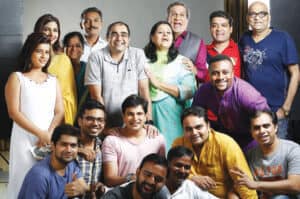
“The more I work, the more ideas I get and opportunities come my way,” he says about his stay in Delhi. This city with all its complexities and contradictions makes him feel lively and, in his own words, “like to flow with ideas” and try new things. This city has given his family reasons to be proud of. There’s a lot more to attain. “We’re not rich but we’re comfortable,” he says with an air of contentment.
Despite a busy schedule, Jason maintains a healthy lifestyle. He exercises regularly, not just for keeping himself in good shape, but for stress management. He has a fetish for good clothes. He wears formals, has a definitive style, which may or may not be congruous with the current fashion trends. “If I don’t wear the clothes of my liking, I feel less confident to deal with the world,” he says without filters.
Jason likes to click pictures and selfies. He makes his own videos while exercising or when he’s celebrating with family and shares it on the social networking sites. The idea is to share the joys of life and “I have nothing to hide,” he says affirmatively. In fact, he’s working on Ola Jason’s Show that will inform people about his native culture and cuisine, and in the process, help people shed misplaced biases against the denizens of Africa.
Delhi is his home. Though, sometimes when he’s alone and pensive, he realises that India is not his motherland. Recently, he was disturbed when he learnt about an eatery run by his Egyptian friend being shut down by the authorities. He says the local cops trust him for speaking the truth, which is great turnaround from the days when he was considered an outlaw. “I never support illegal acts, whether by a fellow African or an Indian. I never shy away from supporting someone who’s being wronged or exploited, African or otherwise,” he says.

